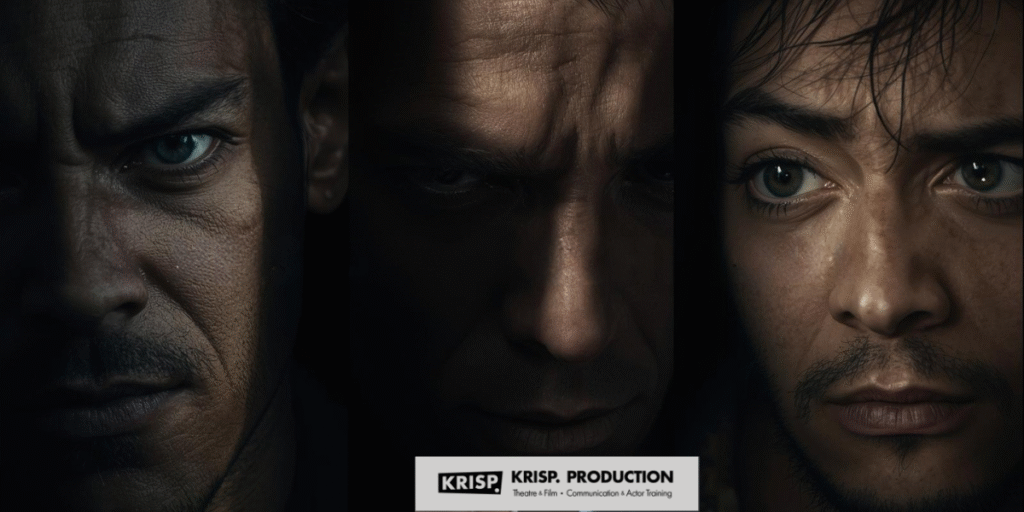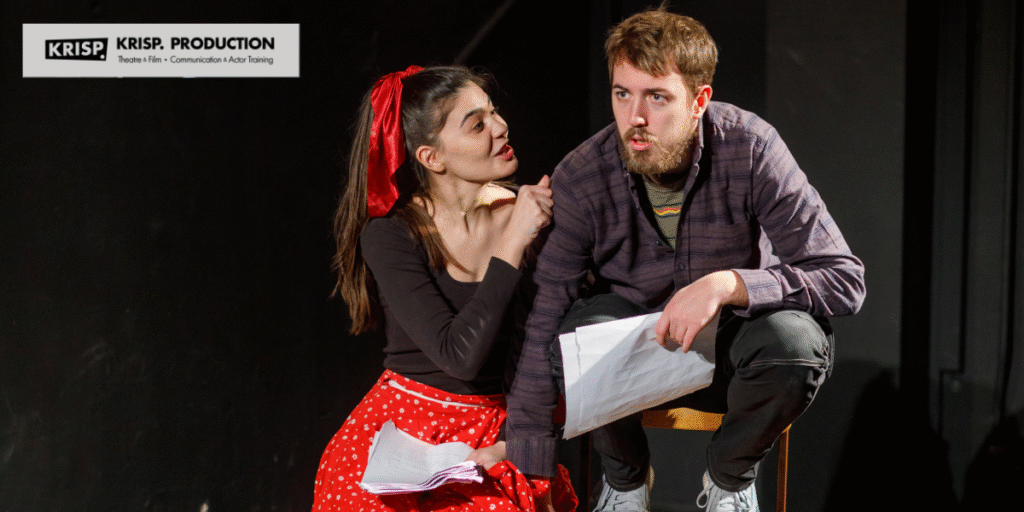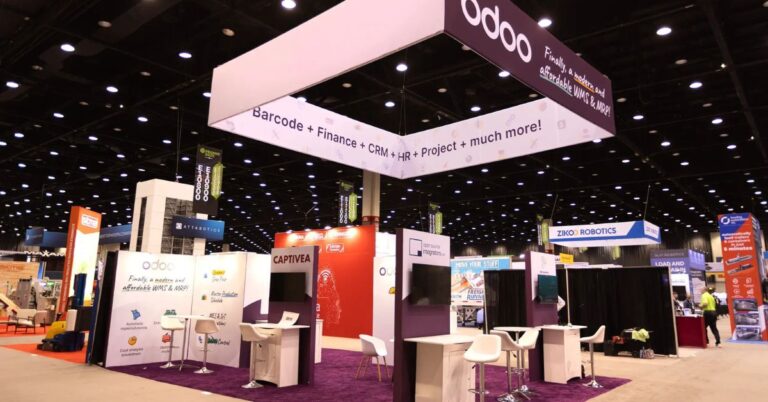Meisner Acting Classes in Singapore: What to Expect

Picture yourself in a room where pretending isn’t allowed. Sounds strange for an acting class, right? Yet this paradox sits at the heart of why the Meisner Technique produces such compelling performers.
Unlike other acting methods that focus on external techniques, Meisner training strips away fake behaviors to show your real responses. And if you’re going to take Meisner acting classes in Singapore, you’ll learn to respond truthfully, connect authentically with partners, and develop natural performance skills.
Through our work at Krisp Production, we’ve watched this method unlock potential in students who never thought they could act naturally.
In this article, we’ll walk through together:
- The fundamentals of the Meisner technique and its core principles
- Repetition exercises and advanced scene study practices
- Why impulse-based training beats traditional acting methods
- Choosing between full-time and part-time classes in Singapore
Let’s explore what makes Meisner classes both challenging and rewarding.
What Is The Meisner Technique?
The Meisner technique is an acting method that trains performers to react truthfully and spontaneously to their scene partners through repetitive exercises and improvisation work. This approach was developed by Sanford Meisner at the Neighborhood Playhouse in New York.

Here’s how it works in practice: the method centers on what Meisner called “living truthfully under imaginary circumstances.”
Instead of planning how to deliver lines, actors learn to listen deeply and respond honestly to what’s happening on stage. This creates performances that feel genuine because they come from real reactions. So you end up with acting that looks natural instead of forced.
When you start this training, the process focuses on structured repetition exercises that build your ability to stay present and connected. The technique works because it helps you be creative through quick responses and gets you ready for any situation by building strong instincts.
Also, movement and physical awareness play important roles, as your body often responds before your mind can plan a reaction. That’s why many actors find their best moments happen when they stop thinking and just react to what their partner gives them.
Since you now understand what makes Meisner training unique from other acting methods, let’s examine the specific exercises that build these skills in Singapore classes.
Core Exercises of Meisner in Singapore
Ever wonder how actors deliver such authentic, spontaneous performances? Well, the secret lies in specific exercises that train your natural responses and build genuine connections with your scene partners. These core Meisner exercises form the backbone of what students practice in Singapore acting classes.

Here are the two main exercises that build these skills:
- The Repetition Exercise
The repetition exercise is the foundation of the Meisner technique for new students. This exercise starts with two actors facing each other, simply repeating what they hear from their partner. The goal is to stop thinking about what to say and start reacting truthfully to what you observe.
For example, if you notice your partner looks tired, you might say, “You look tired,” and they repeat it back. The conversation continues with these everyday observations bouncing between both actors.
What happens next is that the exercise builds your acting skills by forcing you to stay present with your scene partner rather than planning. Once you learn this basic level, the repetitions teach you to listen and respond honestly. Eventually, you learn that these same skills can be applied to scene work from published plays.
One of our enrolled students shared how this exercise changed her approach: “I stopped trying to be interesting and just started being real with my partner.” Her confidence grew because she learned to trust her instincts.
- Independent Activity and Scene Study
As you advance, the training introduces a deeper level of focus and engagement. At this stage, students learn to complete meaningful activities while staying connected to their scene partner. You might be preparing a meal while having an important conversation, just like in real-life situations.
When you practice scene study with these activities, your skills develop in multiple directions at once. And your ability to multitask while staying emotionally available mirrors what professional actors need in complex dramatic situations.
Helpful Tip: Choose activities like folding laundry, organizing papers, or preparing food that genuinely connect to you personally. This way, your performance will feel natural and believable to audiences.
Now that you know the core exercises that build Meisner skills, let’s explore what makes this approach different from other acting methods.
What Makes Meisner a Unique Acting Skill?
Honest reactions, deep listening skills, and impulse-based training make Meisner’s approach a unique acting skill among all performance methods. The technique builds authentic connections between actors without relying on fake emotions or forced gestures.
Let’s look at some qualities that set the Meisner method apart:
Beyond the Head: Following Impulse
Most acting approaches start with analysis and character breakdown, but Meisner reverses this process entirely. Rather than overthinking every choice, the technique teaches actors to trust their first instincts. So you end up with performances that feel spontaneous.
What’s more, students in Meisner classes discover that their acting skills improve dramatically when they stop trying to control every moment. It’s like learning to drive by feel instead of constantly checking your speedometer.
Because of this training, the confidence this builds carries over into theatre and film work, where directors appreciate actors who can respond truthfully to unexpected moments. Even courses and programs now recognize that this method produces stronger performances because it teaches actors to behave naturally.
Developing Your Emotional Life
Your daily experiences become valuable training material through Meisner’s emotional development approach. Think about how you react when someone surprises you or makes you laugh. That genuine response is exactly what Meisner training helps you access on command.
Here’s how Meisner’s approach helps develop your emotional life:
- Connects your personal experiences to the characters’ experiences
- Teaches you to use feelings in imaginary situations
- Creates authentic reactions that audiences immediately recognize as truthful
The best part is that you might become a better friend and partner, too.
What we’ve found is that many actors report that workshops and film projects feel easier because they’ve learned to access their authentic emotional responses. Also, students often discover that this training enriches their life experience with better communication and deeper relationships beyond just acting work.
Once you understand these unique benefits of Meisner training, the next step is finding the right class that matches your experience level and goals.
Meisner in Singapore: Choosing the Right Class for You
When you start looking for the right Meisner classes in Singapore, the options can feel difficult to sort through. But don’t worry. We’re here to help you find a program that matches your goals and schedule.
In this section, we’re going to cover how to find qualified instructors and decide between full-time or part-time training options.
Finding a Reputable Teacher
The instructor you choose will determine your entire experience with the Meisner technique, so this decision deserves careful thought. Before you commit to any program, search for teachers who have trained directly in the method and can show clear success stories from their workshops.
What’s equally important is that a good teacher in Singapore should be able to explain how they structure their classes and what students can expect to explore during training. Often, the best Meisner technique instructors create an environment where actors feel safe to take risks and make discoveries about their art.
Pro Tip: Look for teachers who offer trial classes, as this gives you a chance to see their teaching style before committing to a full program.
Full-Time vs. Part-Time Classes
After you find the right teacher, you’ll need to decide between intensive and flexible scheduling options. While full-time programs offer deep training, they require a lot of time.
The alternative is part-time workshops that let you build your skills slowly while keeping up with other responsibilities. That’s why most beginning actors in Singapore start with part-time classes to see if they enjoy the training before making a bigger commitment.
However, the course format you choose depends on your experience levels and how quickly you want to progress. What we’ve seen is some students prefer the steady pace of weekly classes, while others do better in weekend workshop environments.
Either way, you’ll probably end up practicing your repetition exercises on your confused roommates. So be prepared to explain why you keep saying “you’re wearing a blue shirt” over and over during dinner.
Your Next Steps in Meisner Training
Many aspiring actors worry that authentic performance requires natural talent they don’t possess. But the truth is Meisner technique provides a clear path to genuine acting through structured exercises that anyone can learn with proper guidance.
We’ve explored what makes Meisner training unique, from repetition exercises that build listening skills to advanced scene work that develops emotional availability. You now know how to choose qualified instructors and decide between full-time or part-time programs.
When you’re ready to begin your Meisner journey in Singapore, we’ll be happy to help you take that first step.
Also Read: Pizokeelio: Everything You Need to Know About This Unique Concept






